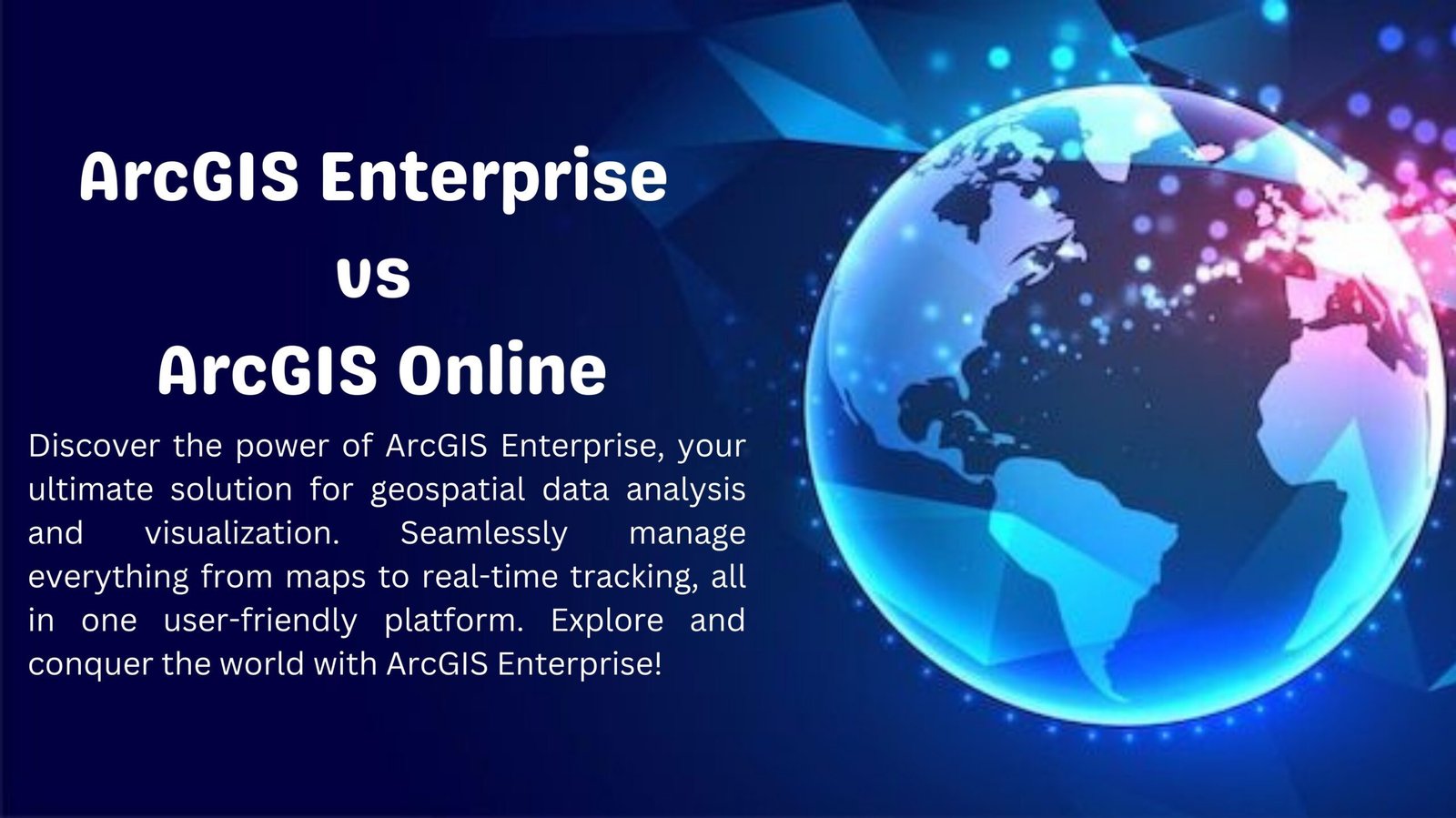Introduction: Geographic Information System (GIS) technology has become indispensable for organizations looking to leverage spatial data for better decision-making and analysis. Esri, a global leader in GIS solutions, offers two primary platforms: ArcGIS Enterprise and ArcGIS Online. In this article, we will compare ArcGIS Enterprise and ArcGIS Online, highlighting their differences, features, and considerations to help you determine the right choice for your organization’s geospatial needs.
- Understanding ArcGIS Enterprise: ArcGIS Enterprise is an on-premises, enterprise-grade GIS platform that allows organizations to deploy and manage GIS infrastructure within their own network. It provides complete control over data storage, security, and customization. ArcGIS Enterprise is ideal for organizations with strict data governance requirements, security concerns, or the need for extensive customization.
- Understanding ArcGIS Online: ArcGIS Online is a cloud-based GIS platform hosted by Esri. It provides a ready-to-use solution for organizations to create, analyze, and share geographic content via the web. ArcGIS Online offers an extensive suite of tools, maps, and apps accessible from any device with internet connectivity. It is suitable for organizations seeking a scalable, user-friendly GIS solution without the need for extensive IT infrastructure or customization.
- Deployment and Infrastructure: ArcGIS Enterprise requires on-premises deployment, meaning organizations must set up their own infrastructure, including servers, databases, and security measures. This allows complete control over data and infrastructure management. In contrast, ArcGIS Online is hosted in the cloud, eliminating the need for organizations to manage their own servers and infrastructure. It offers scalability, easy access, and automatic updates.
- Data Storage and Security: ArcGIS Enterprise provides organizations with complete control over data storage. It allows the use of existing enterprise databases and offers advanced security measures, including integration with Active Directory, single sign-on, and fine-grained access control. On the other hand, ArcGIS Online stores data in the cloud, providing Esri-managed storage and security. While Esri ensures robust security measures, some organizations with sensitive data prefer on-premises data storage for added control and compliance.
- Customization and Extensibility: ArcGIS Enterprise offers extensive customization options, allowing organizations to tailor the platform to their specific needs. It provides APIs, development frameworks, and the ability to integrate with existing enterprise systems. This level of customization is particularly beneficial for organizations requiring specialized workflows or the integration of GIS with other business systems. ArcGIS Online, while providing some customization options, has limitations compared to ArcGIS Enterprise.
- Collaboration and Sharing: ArcGIS Enterprise and ArcGIS Online both facilitate collaboration and sharing of GIS content. However, ArcGIS Online offers more accessible and user-friendly collaboration features, enabling organizations to easily share maps, apps, and data with internal and external stakeholders. It supports collaborative editing, map sharing, and interactive web applications, making it a preferred choice for organizations that value seamless collaboration.
- Cost Considerations: ArcGIS Enterprise involves upfront costs for infrastructure setup, hardware, licensing, and IT resources for ongoing maintenance. The cost of ArcGIS Enterprise depends on factors such as the organization’s scale, customization requirements, and the number of users. ArcGIS Online, being a cloud-based service, follows a subscription-based pricing model with scalable options based on the number of users and additional features required.
Conclusion: Choosing between ArcGIS Enterprise and ArcGIS Online depends on your organization’s specific requirements, data governance policies, customization needs, and budget. ArcGIS Enterprise offers complete control, customization, and on-premises deployment, suitable for organizations with stringent security and customization needs. ArcGIS Online, on the other hand, provides a scalable, cloud-based solution with user-friendly collaboration features, ideal for organizations seeking convenience and accessibility. Evaluate your organization’s needs, consider factors such as data security, customization, and cost, and select the platform that aligns best with your geospatial goals.

